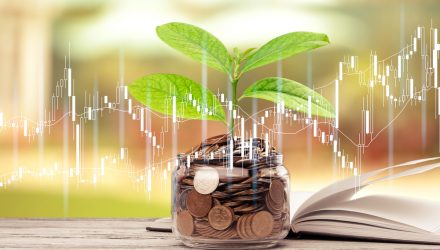ESG investing is at a crossroads. With the implications from the election still not entirely certain, we’ve collected a crack team of experts to talk about the state of play for ESG in 2021.
In the upcoming webcast, ESG 2021: What’s Next For This Dominant Trend?, Michael Arone, Chief Investment Strategist, SPDR, State Street Global Advisors; Mona Naqvi, Senior Director, Head of ESG Product Strategy, S&P Dow Jones Indices; and Bob Smith, President & Chief Investment Officer, Sage Advisory, will look at ESG from the macro perspective, looking beyond the immediate implications of politics and to the broad economic and social trends driving ESG adoption.
As a way to help investors also tap into these opportunities, State Street Global Advisors offers a suite of socially responsible and ESG-related ETFs. For example, the recently launched SPDR S&P 500 ESG ETF (EFIV) enhances both SPDR’s ESG and S&P 500 ETF offerings, helping investors incorporate ESG while achieving a risk and return profile comparable to the S&P 500. The ETF tracks the S&P 500 ESG Index, which is designed to measure the performance of securities meeting certain sustainability criteria (i.e. criteria related to environmental, social, and governance factors) while maintaining a similar overall industry group weight as the S&P 500 Index.
State Street Global Advisors’ SPDR S&P 500 Fossil Fuel Free ETF (SPYX) tries to allow climate change-conscious investors to align the core of their investment strategy with their values by eliminating companies that own fossil fuel reserves from the S&P 500.
The SPDR Kensho Clean Power ETF (CNRG) seeks to provide exposure to the clean power industry both in terms of generation and underlying technology. Alternative energy sources are an increasingly important part of the power generation conversation. The ETF also plays on the idea that government regulations and shifting consumer preferences are causing a structural trend to green energy or reducing carbon emissions.
Additionally, the SPDR MSCI ACWI Low Carbon Target ETF (NYSEArca: LOWC) targets the MSCI ACWI Low Carbon Target Index, which tries to address carbon exposure by overweighting companies with low carbon emissions relative to sales and per dollar of market capitalization, compared to the broader market. LOWC was created for the U.N. Joint Staff Pension Fund.
Financial advisors who are interested in learning more about ESG investing can register for the Thursday, November 12 webcast here.

